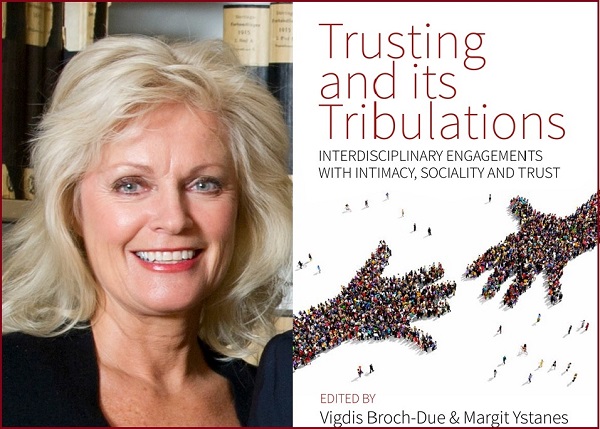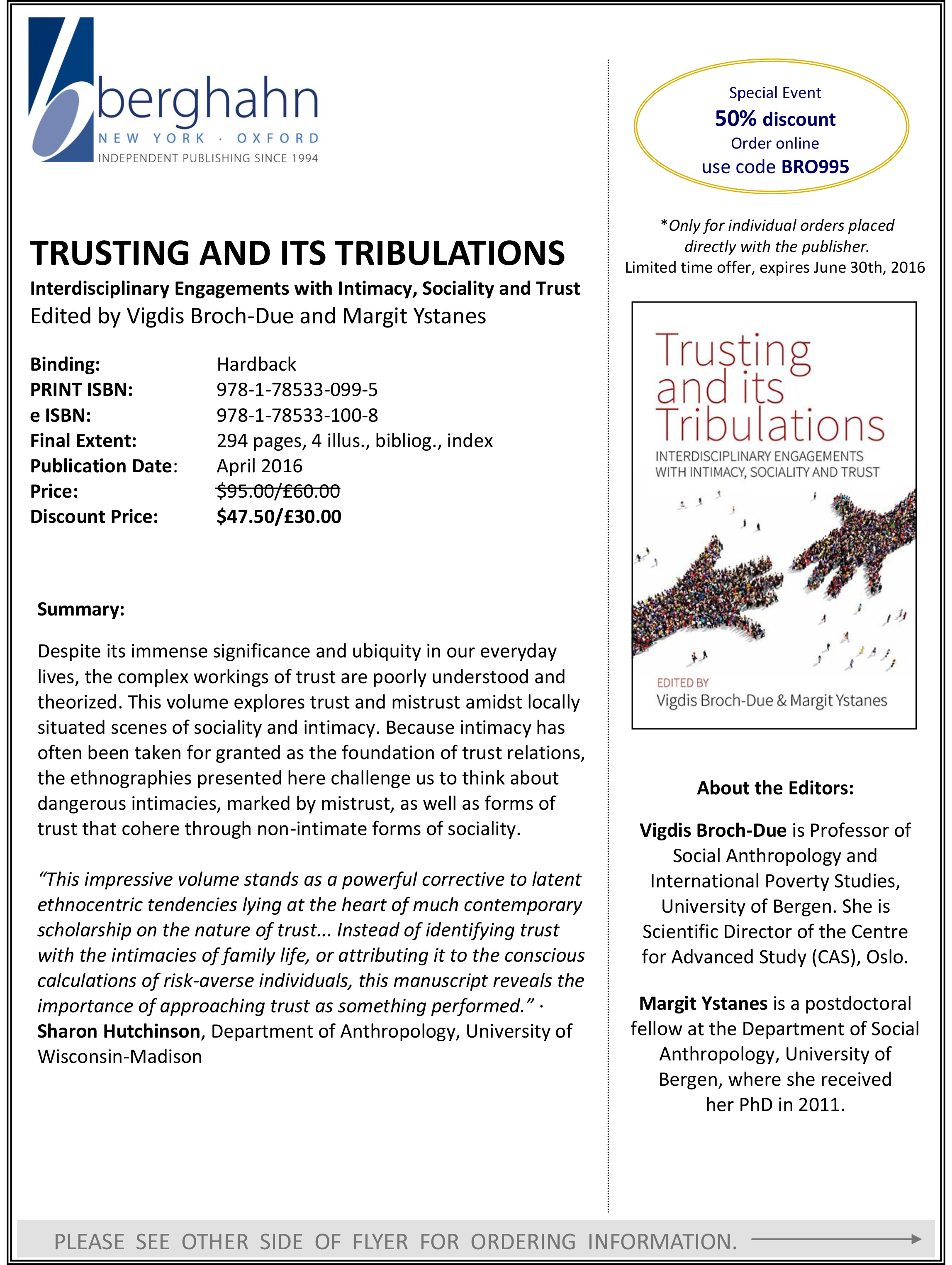Book release: challenging the conventional wisdom about trust

Trusting and its Tribulations: Interdisciplinary engagements with Intimacy, Sociality and Trust brings together a collection of papers by scholars exploring trust and mistrust from the private to the public, in different countries, societies and situations.
The editors claim that despite that “domestic bliss can be hard to come by in most societies” trust scholars –philosophers, economists, biologists, and anthropologists- still take it as axiomatic that trust is an essence of intimate and equal relationships. This means that trust research today operates with an understanding of trust as something that fares badly in hierarchical relationships and in social collectives of higher scales. This volume challenges this conventional wisdom.
Criticising the current trust debate as one from primarily a Western point of view, and a trust research that applies universal and “thin” concepts when exploring trust, the editors want to introduce the complexities of the concept by focusing on the variation in trust formation across cultural contexts.
The case studies explored reveal that trusting is better approached as performative acts rather than an essence.
The diverse working of trust and mistrust
The editors are coming to the problem with fieldwork experience on trust formation from different continents and communities – Ystanes from Central America and Broch-Due from Africa.
-It was abundantly clear from our compiled experiences that trust could not be taken for granted, even in close-knit relationships of kinship, Broch-Due says. Like Ystanes she grew up in Norway, a country that ranks on the top of all trust barometers.
Examples range from the deep suspicion, even mistrust, fracturing Ladino Guatemalans projecting a family façade of pure trust and solidarity, to the trusting modalities of pastoralists in Northern Kenya, which fail to neatly discriminate between distant and close relationships in terms of blood, but rather extend trust and belonging to those who are linked by cattle transfers, including the animals themselves.

Although we humans are intersubjective beings, and probably genetically primed for empathy, this volume exemplifies the huge variation across cultures in the ways in which trust is formed, who is included or excluded from the circles of trust, how extensive trust networks are, and how easily trusting dissolve and turns into deep mistrust.
- Whatever modality of trusting in a society, we find that trust relations in the so-called “private” and “public” spheres are closely interconnected and profoundly impact upon one another. These nuances and intricacies of trust formations have been lost in the division of academic labour, Broch-Due argues.
Whilst the conscious calculation and risk taking related to trust have caught the interest of philosophers, economists and political scientists, the more inchoate, embodied and sensual substrata have been relegated to neuroscience and psychoanalysis. The dominant schools of trust research in the social sciences have largely ignored these primary aspects of trusting. In the tradition of Western scholarship, trust has simply been fragmented and fallen through the fault lines that divide body and mind, nature and nurture, biology and sociology.
As the case studies in this volume clearly show, anthropology has the potential of building bridges over this scholarly divide and empower trust research. For, the “significance of ethnography in this context is exactly its power to open up the conversation by introducing complexity, but without erasing the shared quality of trusting across human diversity”.